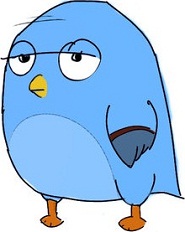 The Twitter affair of our site recently, made me thinking about the value of Twitter to our business. As it turns out, Twitter is playing a pretty significant role in our marketing efforts- My everyday Tweets from the site’s official Twitter account are attracting a lot of visitors to the site.
The Twitter affair of our site recently, made me thinking about the value of Twitter to our business. As it turns out, Twitter is playing a pretty significant role in our marketing efforts- My everyday Tweets from the site’s official Twitter account are attracting a lot of visitors to the site.
Not only that people are loving to find our contents through Twitter, but it also considers as a quality traffic source where people are spending lot of time on the site with more than the average pageviews per visitor. But is this the case in general? Apparently, not so much…
64% Of All Tweets Are Uninteresting
According to a study conducted by Carnegie Mellon University, MIT and Georgia Tech, users finds the big majority of Tweets as not so interesting, while quarter of Tweets are even indicated as completely worthless! Only slightly more than third of the total Tweets were found likable by the users.
As for the research itself: To provide a rating platform, the researchers have built the Who Gives a Tweet site where users can sign up (there is another research on the way, so participate!) and rate Tweets with three sorts of ratings- Positive, neutral and negative. They have collected nearly 44 thousands Tweets from about 21 thousands accounts in a three weeks period at early 2011.
The results were pretty unequivocal. Only 36% of the Tweets gained a positive rating while 25% gained a negative rating and 39% received a natural rating. Meaning that almost two thirds of all Tweets are pretty uninteresting (by the least)! The researcher Michael Bernstein has summarized it up: “A well-received tweet is not all that common, a significant amount of content is considered not worth reading, for a variety of reasons.”
The researchers have provided several tips to improve the quality of Tweets:
- People are bored from old news Tweets.
- Opinion or a relevant facts about the issue may increase interest.
- Although Twitter is up to 140 characters messages platform, people like it even shorter.
- Using too many hashtags (#) or mentions (@) can confuse the readers.
- Too personal information might result negative reactions.
- Tweets with just links or a photo generally perform poorly.
- Too negative Tweets attracts negative reaction.
- Providing an interesting teaser may increase the Tweet CTR.
- Known people on Twitter are suggested to offer professional opinions, gossip or personal information (unlike the regular folks).
Here is a video of the researcher Paul Andre discussing the study: